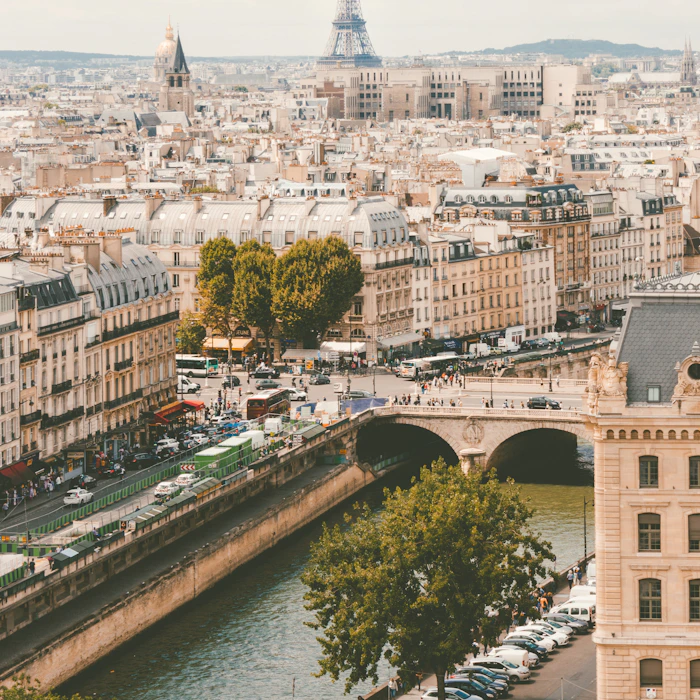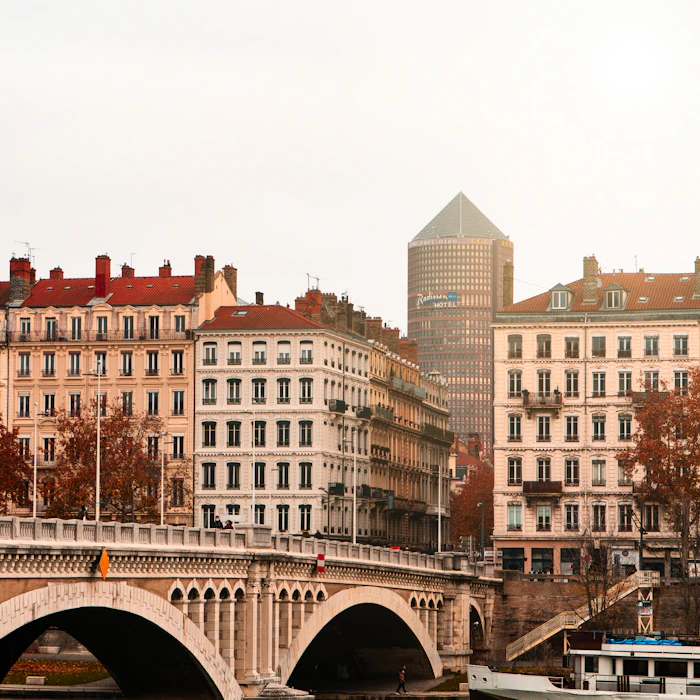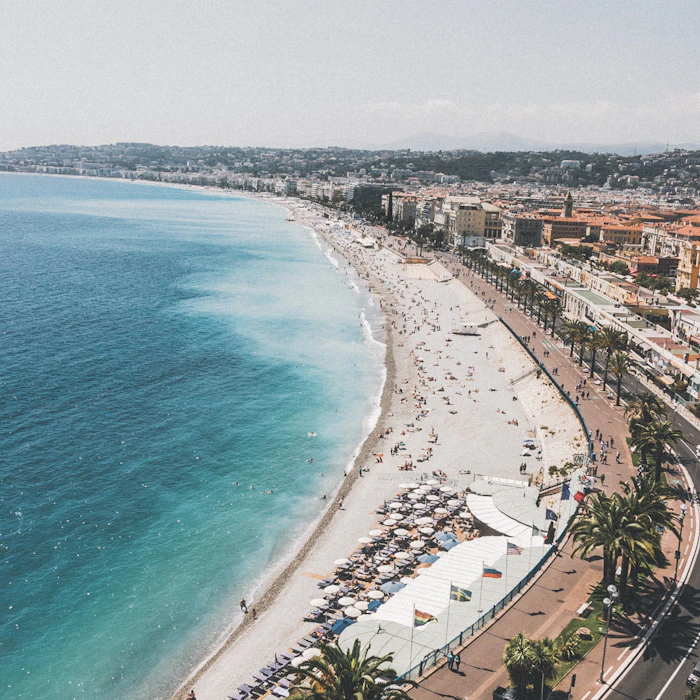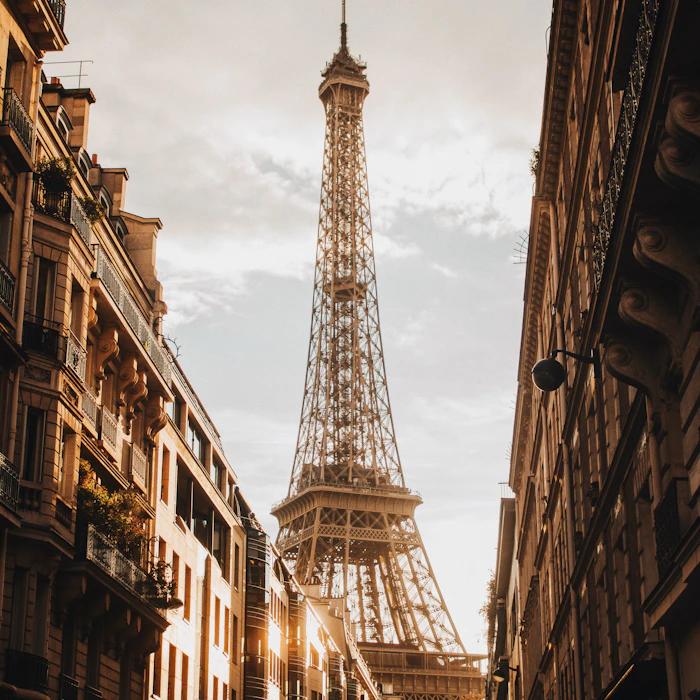


Is Nanterre in France Safe?
Nanterre is generally safe for tourists, with petty crime being the primary concern. Violent crime rates are low, but remain vigilant in crowded areas and at night. Civil unrest occasionally occurs, so monitor local news. Terrorism is an unlikely but potential risk in major French cities. Medical facilities are adequate, but no major health risks exist for travelers.
Safety & Security
Nanterre, a suburb located west of Paris, is generally considered a safe destination for travelers. However, as with any urban area, it's essential to exercise caution and take necessary precautions.
-
Petty Crime: While violent crime rates are relatively low, petty crimes such as pickpocketing and bag snatching can occur, especially in crowded areas and on public transportation. Remain vigilant and keep valuables secure.
-
Scams: Be wary of common scams targeting tourists, such as fake petitions, overcharging for services, or friendly strangers offering unsolicited help.
-
Civil Unrest: Nanterre has experienced occasional civil unrest and protests, which can disrupt transportation and cause localized disturbances. Monitor local news and avoid areas with large gatherings or demonstrations.
-
Terrorism: While the risk of terrorism exists throughout France, Nanterre itself has not been a significant target. However, remain vigilant in crowded public spaces and follow the advice of local authorities.
-
Disputes: Disputes or confrontations with locals are rare but can occur due to cultural misunderstandings or language barriers. Remain respectful and avoid escalating situations.
Overall, Nanterre is a relatively safe destination, but travelers should exercise common sense and take standard precautions to ensure a safe and enjoyable visit.
Health & Medical
Nanterre, a suburb of Paris, is generally a safe destination for travelers in terms of health risks. However, it's essential to take some precautions to ensure a smooth and healthy trip.
-
Vaccinations: No specific vaccinations are required for travel to Nanterre, but it's recommended to be up-to-date with routine vaccinations like measles, mumps, rubella, and COVID-19.
-
Air Pollution: Like many urban areas, Nanterre can experience air pollution, particularly from vehicle emissions. Those with respiratory conditions should take necessary precautions and carry any required medication.
-
Medical Facilities: Nanterre has several hospitals and clinics that provide adequate medical care. However, it's advisable to have comprehensive travel insurance to cover any unexpected medical expenses.
-
Insect-Borne Diseases: While not a significant risk, travelers should take precautions against insect bites by using insect repellent, especially during the warmer months.
-
Water and Food Safety: Tap water is generally safe to drink in Nanterre, but it's recommended to stick to bottled or purified water to avoid any potential issues. Exercise caution when consuming street food or undercooked meals.
Overall, Nanterre is a relatively safe destination from a health perspective, but travelers should take standard precautions and be mindful of their personal health conditions.
Natural Disasters
Nanterre, located in the western suburbs of Paris, is generally not considered a high-risk area for natural disasters. However, as with any destination, it's essential to be aware of potential risks and take necessary precautions.
-
Flooding: The Seine River, which flows through Paris and its surrounding areas, including Nanterre, can occasionally experience flooding during periods of heavy rainfall or rapid snowmelt. While the risk is relatively low, travelers should stay informed about weather conditions and follow local authorities' instructions if flooding occurs.
-
Severe Weather: Like most regions in France, Nanterre can experience severe thunderstorms, strong winds, and hail during certain seasons. These weather events, although infrequent, can disrupt transportation and outdoor activities. Travelers should monitor weather forecasts and take appropriate safety measures.
-
Earthquakes: France is located in a relatively stable tectonic region, and the risk of a significant earthquake in Nanterre is considered low. However, minor tremors can occur, and it's advisable to familiarize yourself with earthquake safety procedures.
-
Heat Waves: During the summer months, Nanterre and the surrounding areas can experience periods of extreme heat and high humidity. Travelers should stay hydrated, seek shade, and avoid strenuous outdoor activities during the hottest parts of the day.
While natural disasters are not a major concern in Nanterre, it's always wise to stay informed about current weather conditions, follow local authorities' guidance, and take appropriate precautions to ensure a safe and enjoyable trip.
Transportation
Public transportation in Nanterre is generally safe and reliable. The city is well-connected to Paris and its suburbs through the RER A train line and several bus routes. However, it's advisable to exercise caution, especially during late hours and in crowded areas, as petty crimes like pickpocketing can occur.
-
Public Transit: The RER A train provides frequent service to and from Paris, making it a convenient option for travelers. Buses also offer good coverage within Nanterre and to nearby destinations.
-
Safety Measures: Public transportation vehicles are equipped with security cameras, and there is often a presence of security personnel, especially during peak hours.
-
Road Safety: While driving in Nanterre is generally safe, be cautious of heavy traffic and aggressive drivers, particularly during rush hours. Pedestrians should exercise caution when crossing streets and use designated crosswalks.
-
Taxis: Licensed taxis are a safe option for transportation, especially at night or when carrying valuables. Avoid unlicensed taxis or private car services for your safety.
-
Cycling: Nanterre has a bike-sharing system, and cycling is a popular mode of transportation. However, be mindful of traffic and wear protective gear.
Cultural Norms
Nanterre, a vibrant suburb of Paris, offers a unique blend of French and multicultural influences. As a traveler, it's essential to respect the local customs and traditions to ensure a seamless and enriching experience. Here are some essential tips:
-
Greetings: Greet locals with a polite "Bonjour" (Good morning/afternoon) or "Bonsoir" (Good evening). A simple nod or smile is also appreciated.
-
Dress Code: While casual attire is generally acceptable, it's advisable to dress modestly when visiting religious sites or attending cultural events.
-
Public Displays of Affection: Public displays of affection beyond holding hands or brief kisses are generally frowned upon and should be avoided.
-
Dining Etiquette: Observe proper table manners, keep your elbows off the table, and avoid loud conversations or using your phone during meals.
-
Religious Sensitivity: Respect religious customs and dress appropriately when visiting places of worship. Remove hats or headwear, and avoid taking photographs without permission.
-
Local Events: Embrace the vibrant cultural scene by attending local festivals, concerts, or exhibitions. These events offer a unique opportunity to immerse yourself in the local culture and traditions.
-
Language Barrier: While many locals in Nanterre speak English, making an effort to learn a few basic French phrases can go a long way in showing respect and appreciation for the local culture.
Remember, respecting the local customs and traditions not only enhances your travel experience but also fosters a positive cultural exchange between you and the locals.
Emergency Services
Emergency services in Nanterre are generally reliable and well-equipped to handle various situations. The city has a dedicated fire department, police force, and medical emergency services that are available 24/7.
-
Fire and Rescue Services are provided by the Nanterre Fire Brigade, which is part of the larger Paris Fire Brigade. They are trained to respond to fires, accidents, and other emergencies.
-
Police Services in Nanterre are handled by the National Police and the Municipal Police. They work to maintain law and order, and can assist travelers in case of theft, assault, or other criminal incidents.
-
Medical Emergency Services are provided by the SAMU (Service d'Aide Médicale Urgente), which is the French emergency medical service. They can dispatch ambulances and provide emergency medical care.
-
Tourist Assistance is available through the local tourist office, which can provide guidance and support to travelers in case of emergencies or other issues.
It's important to note that while emergency services are generally reliable, language barriers can sometimes pose a challenge for non-French speakers. It's advisable for travelers to learn a few basic French phrases or carry a translation app to facilitate communication in case of an emergency.
Frequently Asked Questions

Is Nanterre safe for tourists?
Nanterre, a suburb of Paris, is generally safe for tourists. However, as with any major city, it's advisable to exercise caution, especially in crowded areas and at night. Remain vigilant against petty crimes like pickpocketing and bag snatching.
Is Nanterre safe for solo female travelers?
Solo female travelers can feel relatively safe in Nanterre, but it's still wise to take precautions. Avoid walking alone at night in deserted areas, and be cautious when using public transportation late at night. Dress modestly to avoid unwanted attention.
Is Nanterre safe for families?
Nanterre is a family-friendly destination. It offers several parks, playgrounds, and kid-friendly attractions like the Jardin des Plantes. However, families should exercise caution in crowded areas and be mindful of pickpockets.
Is Nanterre LGBTQ+ friendly?
France is generally LGBTQ+-friendly, and same-sex marriage is legal. However, it's advisable for LGBTQ+ travelers to exercise discretion in public displays of affection, as some areas may be more conservative.
Do you need a visa to go to Nanterre?
Citizens of most Western countries do not require a visa for stays of up to 90 days in France. However, a valid passport is mandatory for all visitors. It's recommended to check visa requirements based on your nationality before traveling.
Can you drink tap water in Nanterre?
The tap water in Nanterre is safe to drink. However, some visitors may prefer bottled water due to the taste or as a precaution against potential stomach issues.
What is the currency in Nanterre?
The currency used in Nanterre is the Euro (€). Major credit cards are widely accepted, but it's advisable to carry some cash for smaller purchases.
France Travel Advisory
The following government travel advisories provide additional helpful resources for your destination to stay safe and informed.
Related Content
- LOW RISK
🇫🇷 France
France is generally safe for tourists, but petty crime like pickpocketing and bag snatching is common in major cities and tourist areas. Terrorism remains a risk, with occasional attacks targeting public spaces. Civil unrest can disrupt travel plans, so monitor news and avoid protests. While violent crime is relatively low, be cautious in isolated areas, especially at night. Familiarize yourself with local laws and customs to avoid cultural misunderstandings.
- LOW RISK
🇫🇷 Bellevue, France
Bellevue in France is generally safe for tourists, with low crime rates and minimal political tensions. However, be vigilant against petty crimes like pickpocketing in crowded areas. The region has a low risk of natural disasters, but heavy rainfall can occasionally cause flooding. Public transportation is reliable and well-maintained, ensuring safe travel within the city.
- LOW RISK
🇫🇷 Bordeaux, France
Bordeaux is generally safe for tourists, with a low risk of violent crime. However, remain vigilant against petty crimes like pickpocketing, especially in crowded areas. The city experiences occasional protests and strikes, so avoid confrontations. While the risk of terrorism is low, remain aware of your surroundings. Bordeaux has excellent medical facilities, but some vaccinations may be recommended based on your travel plans.
- LOW RISK
🇫🇷 Lyon, France
Lyon is generally a safe city for travelers, with low violent crime rates. However, be vigilant against petty crimes like pickpocketing in crowded areas and on public transport. Protests and civil unrest occasionally occur, so avoid demonstrations. Lyon has excellent medical facilities, but some vaccinations may be recommended depending on your travel plans. Overall, Lyon is a secure destination with a few reasonable precautions.
- MEDIUM RISK
🇫🇷 Marseille, France
Marseille has a higher crime rate than other French cities, with risks of petty theft and muggings, especially around tourist hotspots. Violent crime is relatively low but disputes can escalate quickly. Travelers should remain vigilant and avoid isolated areas, especially at night. The city has seen sporadic civil unrest and terrorist threats, though the overall risk is moderate. Adequate medical facilities are available for most routine issues.
- LOW RISK
🇫🇷 Nice, France
Nice is generally safe for tourists, but petty crime like pickpocketing is common in crowded areas. While violent crime is rare, terrorist threats remain a concern in France. The city has good medical facilities, but travelers should take precautions against mosquito-borne diseases. Natural disasters are not a major risk, but flooding can occur during heavy rains. Public transportation is reliable, but road safety requires caution due to aggressive driving.
- MEDIUM RISK
🇫🇷 Paris, France
Paris is generally safe for tourists, but petty crimes like pickpocketing and bag snatching are common in crowded areas. Remain vigilant in tourist hotspots and on public transportation. While the risk of terrorism exists, it's relatively low. Violent crime rates are also low, but disputes and scams occasionally target tourists. Avoid confrontations and exercise caution, especially at night in certain neighborhoods.
- LOW RISK
🇫🇷 Strasbourg, France
Strasbourg is generally safe for tourists, with low violent crime rates. However, petty crimes like pickpocketing occur in crowded areas, so remain vigilant. The risk of terrorism is present but relatively low. Occasional protests related to political tensions may disrupt transportation. Overall, Strasbourg is a secure destination with proper precautions.
- LOW RISK
🇫🇷 Toulouse, France
Toulouse is generally safe for tourists, with low violent crime rates. However, petty crimes like pickpocketing are common in crowded areas. Protests and strikes can disrupt transportation occasionally. Travelers should remain vigilant in busy tourist spots and during public events. The city has excellent medical facilities, but some vaccinations may be recommended for certain travelers.













